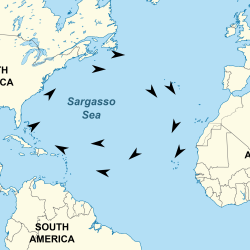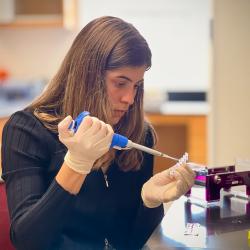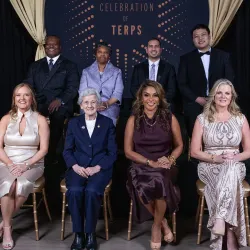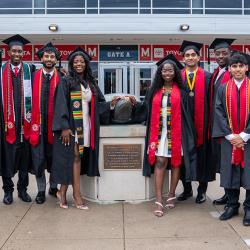Falling into Entrepreneurship
Senior biological sciences major Maria Chen admits she chose to attend the University of Maryland for its sports teams.
"I couldn't even bring myself to apply to any colleges that were Maryland's rivals in sports," said Chen, who grew up in nearby Germantown and followed UMD athletics during high school.
To her joy, Chen not only gained acceptance into UMD's Integrated Life Sciences program in the Honors College, but also received the Clay Siegall Scholarship. The four-year full scholarship for a life science major was created by Siegall, B.S. '82, zoology, the founder and CEO of Seattle Genetics.
After she graduates from UMD in May, Chen plans to attend medical school. Although she was afraid of blood as a child, volunteering at hospitals during high school changed Chen's mind about pursuing a career in medicine.
"I saw that even though the doctors had completed their medical training, they were still working hard to learn every day," Chen said. "I thought, this is the kind of thing I want to do."
This decision thrilled Chen's grandmother, who was one of the only women in her medical school class in China.
"My grandma never pushed me toward becoming a doctor, and she made it clear how difficult that path would be," Chen said. "But she was the first person I told when I decided to study medicine."
To gain clinical experience, Chen began working at Washington Adventist Hospital in Takoma Park, Maryland, in 2016. As a scribe in the emergency room, Chen created charts for doctors while they treated patients.
"What I loved about working in the ER is that you get to help everyone in need, not just those who choose to come to you," Chen explained. "I felt that we helped people of all demographics, increasing our impact on the community." In 2017, Chen's interest in medicine led her to join electrical and computer engineering major Erich Meissner and computer science major Kyle Liu in the Do Good Challenge, a campus initiative that encourages students to develop solutions for social problems.
Meissner's grandmother had recently suffered a fall and lost consciousness. This motivated Meissner, Chen and Liu to start a company, Symbiont Health, to develop a device that automatically detects when a person falls down. Symbiont won both the 2018 Pitch Dingman Competition—UMD's annual student-only business competition—and the 2018 Do Good Challenge. Chen and her teammates also received the Social Entrepreneur of the Year award at the Robert H. Smith School of Business' 2018 Rudy Awards.
"I had no business experience and felt intimidated at first," Chen said. "But I was passionate about Symbiont because our device sends alerts even if the person who fell is unconscious. I love that we can reach patients who don't realize that they need help."
As Symbiont's chief medical officer, Chen surveyed medical communities and used their feedback to improve patient satisfaction, such as pivoting from a wearable device to a home-based system. Chen now works with caregivers to learn how Symbiont can help reduce their stress and provide better care to patients. Last summer, Chen learned from another successful entrepreneur when she interned with Siegall at his company, Seattle Genetics, which develops antibody-based treatments for cancer.
"In the ER, I often saw people dying of cancer and suffering from the side effects of their treatments," said Chen, whose aunt was diagnosed with ovarian cancer a few years ago. "Seattle Genetics is interesting to me because the company is creating therapies that will fight cancer cells and leave healthy cells alone, reducing side effects and providing patients with a better quality of life during a very scary moment in their lives."
Back on campus last fall, Chen continued to work at Symbiont. She also returned to Washington Adventist Hospital, this time as chief scribe in the emergency room. And she still makes time for her first love: Maryland athletics.
"If we win, I'm in a great mood, but I get really down if we lose," Chen said. "My roommates are not into sports, but they still check the scores—to see if they have to avoid me!"
Written by Z. Irene Ying
This article was published in the Winter 2019 issue of Odyssey magazine. To read other stories from that issue, please visit go.umd.edu/odyssey.







